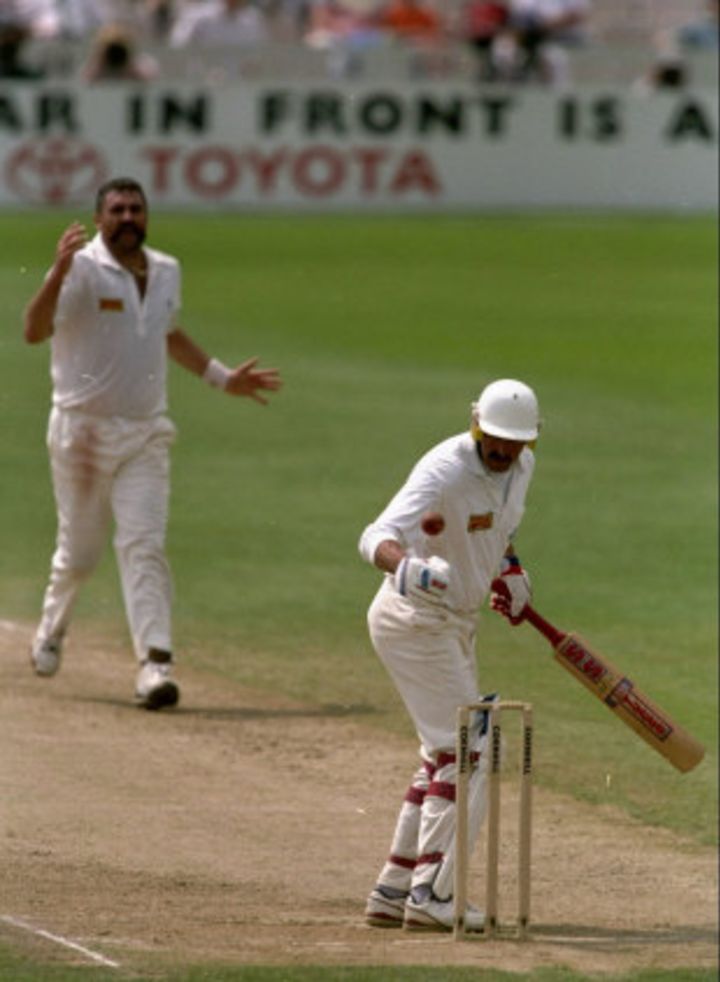Hand it to the bowler
A handled-the-ball dismissal should count towards a bowler's wicket tally

Old Trafford, 1993. Graham Gooch has reached 133 not out and appears to be batting England to a draw against Australia in the first Ashes Test. Merv Hughes, all bustle and bluster, hurls down a ball that pushes Gooch onto the back foot, seaming into England's captain and cramping him.
Slightly late on the shot, Gooch jams the ball down into the batting crease, and turns to see it threatening to land directly on top of the stumps. In an instant of panic, he pushes it away (watch from 9 mins 25 secs) with his hand, and Australia's surprised but vehement appeal for handled the ball is met by Dickie Bird's raised finger.
Hughes is at the centre of celebrations, having drawn the error that caused Gooch's brain snap. But he is not awarded any credit for the wicket. Hearing of this anomaly later, Hughes is quite understandably upset. "Why not?" is the substance of his protest at "b Hughes" not being entered into the scorecard after "Gooch, handled the ball". Hughes, and any other bowler to have pushed a batsman into such a fatal error, has every right to ask the question.
On the face of it, handled-the-ball dismissals are not credited to the bowler because there are other circumstances in which it is possible for the batsman to be given out. He may pick up the ball and throw it back to the bowler, who is within his rights - if not the right spirit - to appeal for the wicket. This was the fate that befell Andrew Hilditch in Perth against Pakistan in 1979, and there was little credit due to the bowler Sarfraz Nawaz in the circumstances.
However, this scenario is far, far less common than that of Gooch and Hughes. In Chennai in 2001, Steve Waugh did precisely the same thing, using his hand to prevent himself from being bowled by Harbhajan Singh and so forfeiting his wicket. In 1986, Mohinder Amarnath transgressed similarly against Greg Matthews, with much the same result. If the batsman has stopped a bowled dismissal via illegal means, why should the bowler not be granted the wicket that was going to be his anyway?
It would certainly be no more of a reward for the bowler concerned than that he receives when a batsman is out hit-wicket, having trodden on his stumps in the act of playing a stroke. Often those dismissals happen when the ball is in very little danger of actually defeating the batsman by conventional means; the fault is far more with the batsman than the credit with the bowler.
Cricket's fine balance between bat and ball is among its greatest assets, but this is one instance in which the bowlers can feel rightly hard done by. Gooch's dismissal has stood in history as the moment the Old Trafford Test tilted decisively towards Australia. Hughes should be allowed to claim it as his Test wicket No. 213.
Daniel Brettig is an assistant editor at ESPNcricinfo. He tweets here
Read in App
Elevate your reading experience on ESPNcricinfo App.